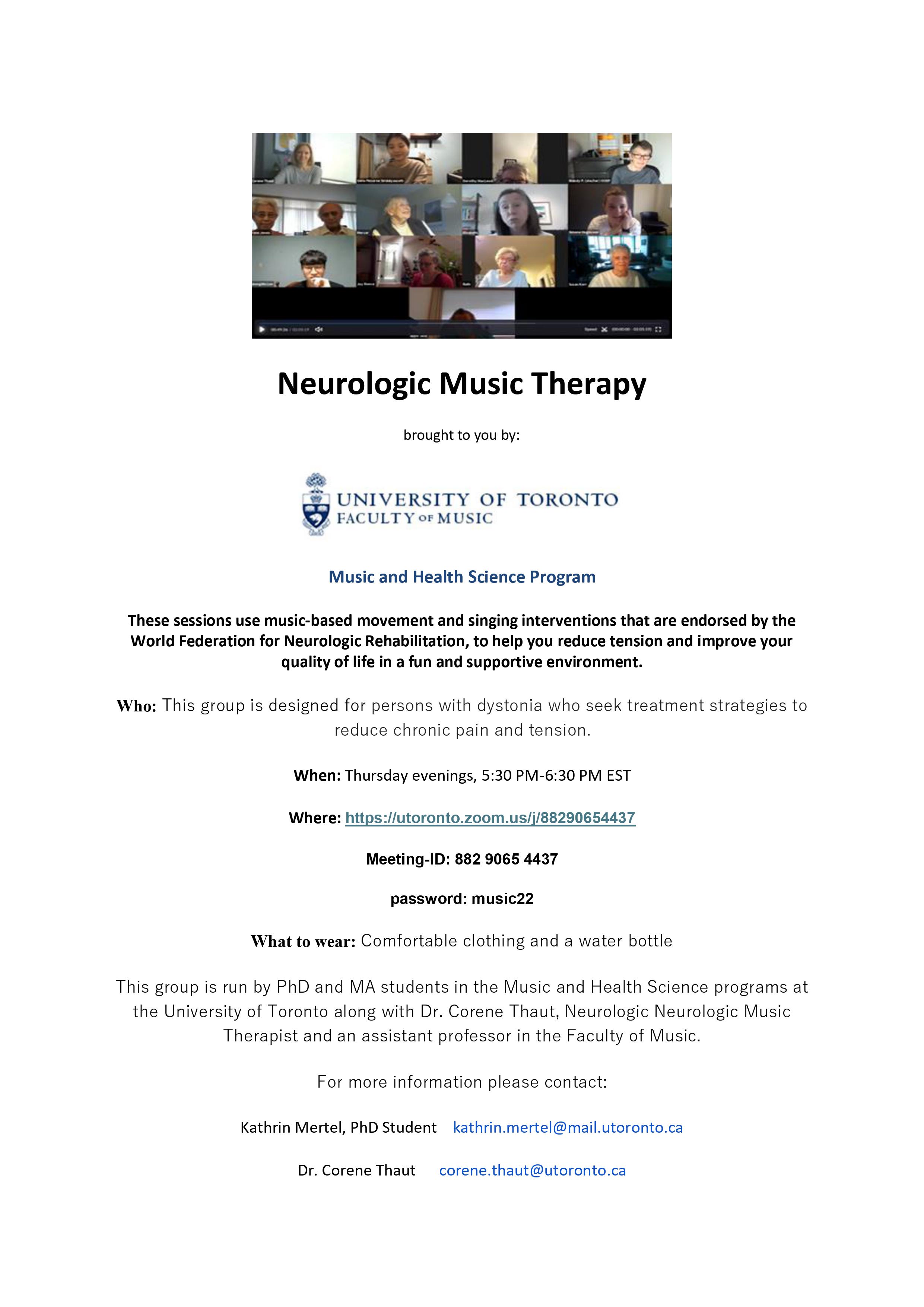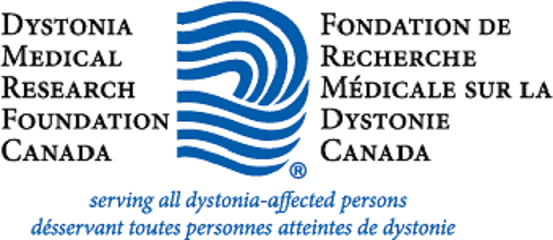Neurologic Music Therapy for movement disorders
Neurologic Music Therapy (NMT) is the evidence-based practice that makes use of standardized musical exercises that can be applied to areas of functioning including cognition, motor skills & communication.
NMT classes will be offered by student music therapists at the University of Toronto's Faculty of Music, over Zoom groups, for 60 minutes.
These sessions use music-based movement and singing interventions that are endorsed by the World Federation for Neurologic Rehabilitation, to help you reduce tension and improve your quality of life in a fun and supportive environment.
Click here to enroll
Click here to sign waiver
Who: This group is designed for persons with dystonia who seek treatment strategies to reduce chronic pain and tension.
When: Thursday evenings 5:30 pm-6:30 pm EST. Please check your corresponding time zone. The Zoom room will be open 15 minutes earlier at 5:15 pm EST, so please sign in earlier if you'd like some time to chat.
Where: https://utoronto.zoom.us/j/88290654437
Meeting-ID: 882 9065 4437
password: music22
What to wear: Comfortable clothing and a water bottle
This group is run by PhD and MA students in the Music and Health Science programs at the University of Toronto along with Dr. Corene Thaut, Neurologic Neurologic Music Therapist and an assistant professor in the Faculty of Music.
For more information please contact:
Kathrin Mertel, PhD Student kathrin.mertel@mail.utoronto.ca
Dr. Corene Thaut corene.thaut@utoronto.ca

